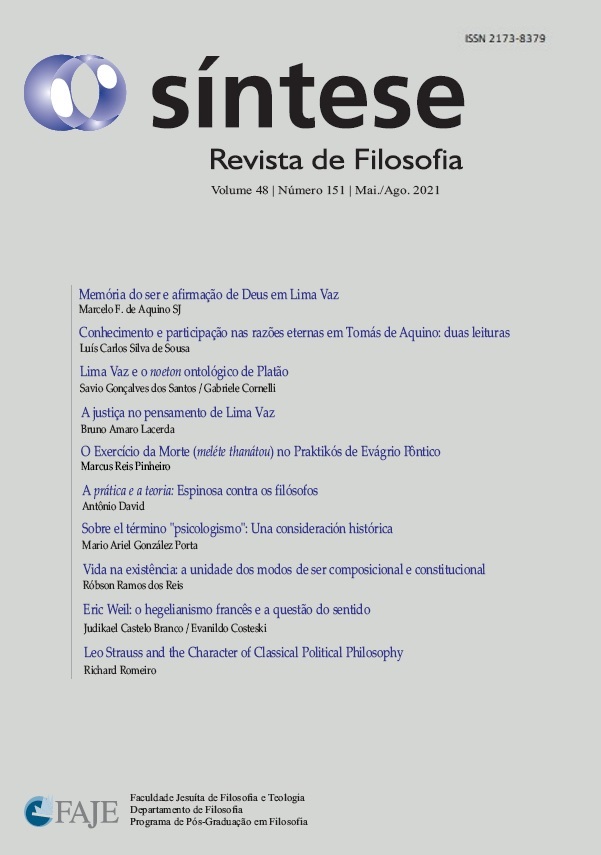THE EXERCISE OF DEATH IN THE PRAKTIKÓS OF EVAGRIUS PONTICUS
DOI:
https://doi.org/10.20911/21769389v48n151p395/2021Abstract
This paper presents some aspects of the exercise of death (meléte thanátou) or memory of death (mnéme thanátou) in Evagrius Ponticus (346, - 400 AD.) through the translation and commentary of chapters 29 and 52 of the Praktikós. The locus classicus of this exercise of death is the Phaedo (63b – 69e and 80e – 81a), the platonic dialogue in which Socrates meets his end. Based on the dialogue characteristics, the paper analyses Evagrius Ponticus ´ texts showing the twists and turns, innovations, and continuities in comparison to the Platonic dialogue. Our approach will first (1) briefly describe the way in which the exercise is presented in the Phaedo, (2) give a quick overview of the ascetic texts of early Christian monasticism (especially how it appears in Athanasius ´Life of Saint Antony by Athanasius), and, lastly, (3) examine the Evagrian texts mentioned above. Throughout the research, a clear distinction was drawn between Plato and Evagrius: the epistemic aspects, central to the Phaedo, are absent from the Evagrian texts discussed. As the exercise of death is linked to the practical part of Evagrius´ work, the epistemic issues are not at central to the description of the exercise in question. Though it is secondary, another important difference is that in Evagrius´ texts, the exercise of death is also an exercise of imagination which leads to an urge to asceticism. For Evagrius, it is only possible to lead an excellent life if one bears in mind the proximity to death.


















